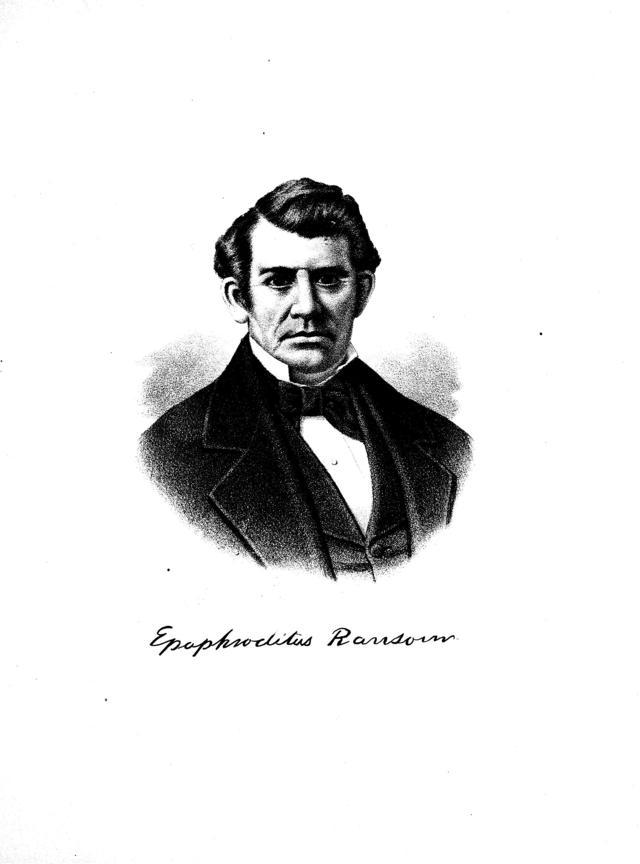The Hon. Epaphroditus Ransom , the Seventh Governor of Michigan, was a native of Massachusetts. In that State he received a collegiate education, studied law, and was admitted to the bar. Removing to Michigan about the time of its admission to the Union, he took up his residence at Kalamazoo.
Mr. Ransom served with marked ability or a number of years n the State Legislature, an din 1837 he was appointed Associate Justice of the Supreme Court. In 1843 he was promoted to Chief Justice, which office he retained until 1845, when he resigned.
Shortly afterwards he became deeply interested in the building of plank roads in the western portion of the State, and in this business lost the greater portion of the property which he had accumulated by years of toil and industry.
Mr. Ransom became Governor of the State of Michigan in the fall of 1847, and served during one term, performing the duties of the office in a truly statesman manner. He subsequently became President of the Michigan Agricultural Society, in which position he displayed the same ability that shone forth so prominently in his acts as Governor. He held the office of Regent of Michigan University several times, and ever advocated a liberal policy in its management.
Subsequently he was appointed receiver of the land office in one of the districts in Kansas, by President Buchanan, to which State he had removed, and where he died before the expiration of his term of office.
We sum up the events and affairs of the State under Gov. Ransom’s administration as follows: The asylum of the Insane was established, as also the Asylum for the Deaf, Dumb and Blind. Both of these institutes were liberally endowed with lands, and each of them placed in charge of a board of five trustees. The appropriation in 1949 for the deaf and dumb and blind amounted to $81,500. On the first of March, 1848, the first telegraph line was completed from New York to Detroit, and the first dispatch transmitted on that day. The following figures show the progress in the agriculture: The land reported as under cultivation in 1848 was 1,437,460 acres; of wheat their were produced 4,749,300 bushels; other grains, 8,197,767, bushels; wool 1,645,756 pounds; maple sugar, 1,774,369 pounds; horses, 52,305; cattle, 210,268; swine, 152,541; sheep, 610,534; while the flour mills numbered 228, and the lumber mills amounted to 730. 1847, an act was passed removing the Legislature from Detroit to Lansing, and temporary buildings for the use of the Legislature were immediately erected at a cost of $12,450.
Source: Chapman Brothers. Portrait and biographical record of Genesee, Lapeer and Tuscola counties, Michigan. Chicago: Chapman brothers, 1892.

